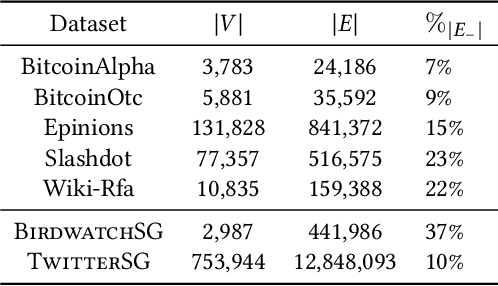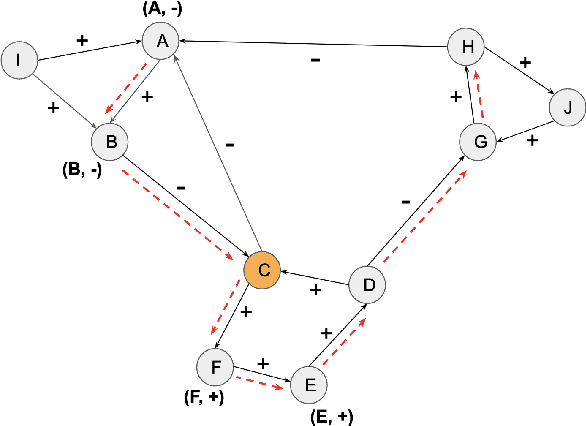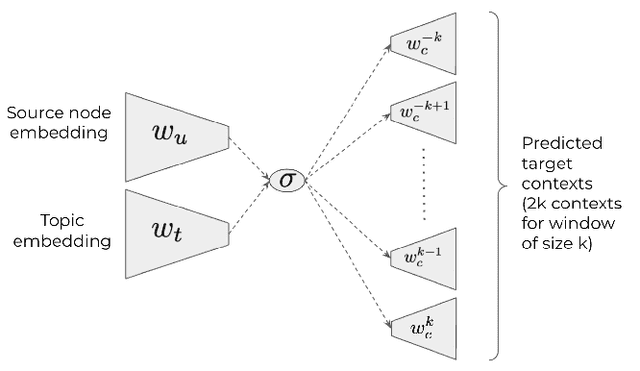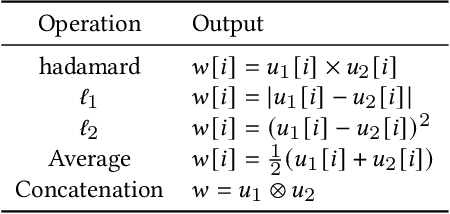Learning Stance Embeddings from Signed Social Graphs
Paper and Code
Jan 27, 2022



A key challenge in social network analysis is understanding the position, or stance, of people in the graph on a large set of topics. While past work has modeled (dis)agreement in social networks using signed graphs, these approaches have not modeled agreement patterns across a range of correlated topics. For instance, disagreement on one topic may make disagreement(or agreement) more likely for related topics. We propose the Stance Embeddings Model(SEM), which jointly learns embeddings for each user and topic in signed social graphs with distinct edge types for each topic. By jointly learning user and topic embeddings, SEM is able to perform cold-start topic stance detection, predicting the stance of a user on topics for which we have not observed their engagement. We demonstrate the effectiveness of SEM using two large-scale Twitter signed graph datasets we open-source. One dataset, TwitterSG, labels (dis)agreements using engagements between users via tweets to derive topic-informed, signed edges. The other, BirdwatchSG, leverages community reports on misinformation and misleading content. On TwitterSG and BirdwatchSG, SEM shows a 39% and 26% error reduction respectively against strong baselines.
 Add to Chrome
Add to Chrome Add to Firefox
Add to Firefox Add to Edge
Add to Edge